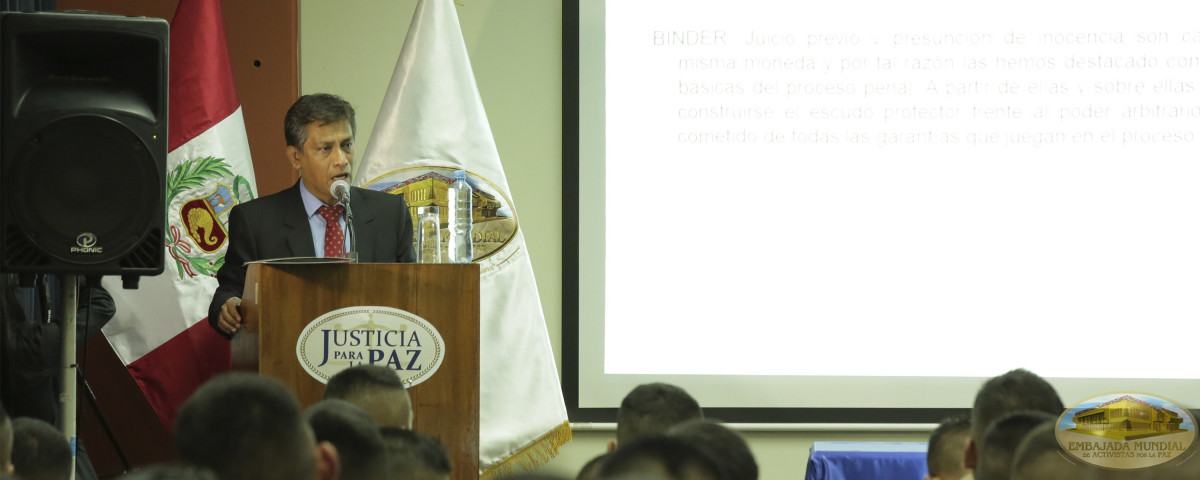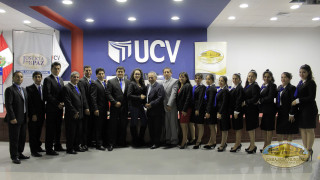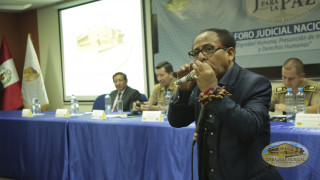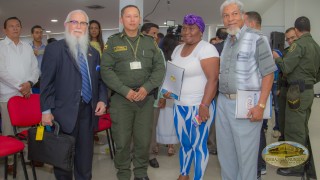Human Dignity, Presumption of Innocence and Human Rights: Reflections in Peru
Authorities in the judicial branch of Peru were invited to reflect on the “Challenges of Universal Justice for Peace in a Globalized World” at the 2nd National Judicial Forum of GEAP, organized jointly with the Graduate School of the National University of Trujillo.
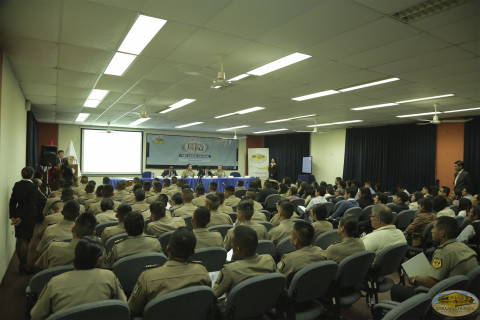
The topics presented were based on respect for human dignity, the presumption of innocence and the guarantee of human rights, as fundamental elements for achieving a stable and lasting peace.
The first presentation was given by Trujillo’s provincial criminal prosecutor, William Rabanal Palacios, who addressed the topic “Presumption of innocence and Human Rights.” In his dissertation he emphasized the principle of presumption of innocence:
“In pre-trial detention, the defendant never loses his dignity even though he is being investigated in criminal proceedings; the only thing that restricts him is his right to freedom, but not the other rights.”
And regarding the role of the authorities in this process, he said: “No authority can present a person as guilty or give information in that sense, either as linked or as investigated. You have to be very careful with the use of language because it can lead to a process of abuse of authority or slander.”
For his part, Cristian Renato Vidal del Carpio, chief of the Battalion of the Student Regiment and head of the Discipline Office of the School of Higher Education, Professional Technician of the National Police in Trujillo, said:
“It is the obligation of every member of the National Police of Peru to respect unrestricted Human Rights, respect the dignity of persons, the Constitution and the laws of the Republic.”
Vidal stressed that for the use of force, fundamental principles must be taken into account, such as “legality, which implies subjecting public forces to the mandate of the law; the need, which refers to being aware of the level of collaboration in any police intervention, active or passive resistance; aggression or degree of opposition made by the alleged offender; and the condition of the environment, urban or rural.”
Manuel Estuardo Luján Túpez, senior judge of the First Criminal Chamber of Appeals of Trujillo, of the Superior Court of Justice of La Libertad, gave the last speech. In the presentation of the topic “Challenges of Universal Justice for Peace in the Globalized World,” the judge stated:
“I have been a criminal judge for around ten years, many more as a lawyer, and in all my years of service I have not seen people who are involved in crime be afraid of jail, quite the contrary. Punishment is not the way.”
In his opinion:
“The righteous man is not one who commits no injustice, but whoever being unjust, makes the decision and does not want to do it.”
Among the authorities the director of the School of Higher Technical Education of Police and Colonel of the National Police of Peru, Javier Gallardo Mendoza, was also present.
At the end of the presentations of the Forum, space was given to a round of questions for the discussion of the relative issues, and clarification of doubts.
The purpose of these national judicial forums, which are being carried out in more than 20 countries, is to strengthen the administration of justice, is to strengthen the administration of justice, to clarify the scope and to promote respect for human dignity, presumption of innocence and Human Rights, as well as recognition and respect for victims’ rights to truth, justice, reparation and non-repetition guarantee.
